On October 22, the Ho Chi Minh City Business Association (HUBA) in collaboration with the Ho Chi Minh City Information Technology Association (HCA) and the Ho Chi Minh City Center for the Fourth Industrial Revolution (HCMC C4IR) organized a specialized workshop on Smart Factory 2025 with the theme "AI for Green Factory".
Mr. Nguyen Phuoc Hung, Vice Chairman of HUBA, said that after expanding the economic space, Ho Chi Minh City and its surrounding areas possess great potential, with more than 43,000 industrial enterprises, accounting for over 28% of the country and 90 industrial parks, export processing zones, and high-tech zones with nearly 32% of the national industrial land fund.
"This expanded economic space is the launching pad for forming inter-regional high-tech industrial clusters, promoting smart supply chains," said Mr. Hung.
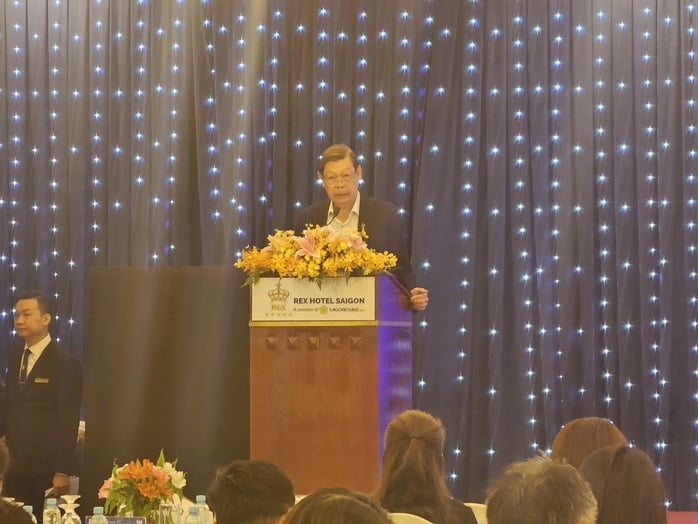
Mr. Nguyen Phuoc Hung, Vice President of Ho Chi Minh City Business Association, spoke at the event.
Sharing a real story, Ms. Lam Thuy Ai, Chairwoman of the Board of Directors of Mebipha Production - Trading Company Limited, said that the enterprise has digitized the entire production - packaging - distribution process, helping data from feed, egg production to costs and finances to be recorded and analyzed in real time, ensuring traceability from farm to table.
At Mebi Farm, Mebipha has applied a series of automation technologies from BMS (building management system), ERP (enterprise resource planning) and IoT (Internet of Things) to monitor and operate operations remotely.
As a result, efficiency increased by 30%, management costs decreased by 20%, inventory errors were almost zero, and ISO 22000:2018 and GMP-WHO certification were achieved.
"The closed, high-tech farm helps automate the entire process of raising and producing Pinky eggs. Each year, the company produces about 375 million eggs and 17,000 tons of organic fertilizer," said Ms. Lam Thuy Ai.
Mr. Nguyen Thanh Quan, Deputy General Director of Binh Minh Plastic Engineering, shares about the process of converting to a smart factory.
Mr. Nguyen Thanh Quan, Deputy General Director of Engineering of Binh Minh Plastics Joint Stock Company (BMP), said that the company has applied more than 100 self-made robots in assembling, picking, and cutting products; integrated IoT to monitor operations and warn of abnormalities early; and used AI cameras to control quality right in the production line.
The company also invested in solar power systems, converting 100% of forklifts to electric, helping to reduce fossil fuel consumption.
In 2024, the innovation projects will help Binh Minh Plastics earn more than 35 billion VND in profit, reduce more than 1,000 tons of CO₂-eq, and be honored as “Ho Chi Minh City Green Enterprise 2023–2024”.
However, Mr. Quan said that the deployment of renewable energy still faces many procedural barriers. He cited the example of Binh Minh Plastics' solar power project in Binh Duong that took nearly two years to complete due to the complicated and overlapping licensing process.
This slows down the transition to smart, green factories, reduces efficiency in exploiting renewable energy and optimizing operating costs.
Source: https://nld.com.vn/thu-tuc-lap-dat-dien-mat-troi-khien-doanh-nghiep-cham-chuyen-doi-nha-may-thong-minh-196251022140549885.htm


![[Photo] Da Nang: Shock forces protect people's lives and property from natural disasters](https://vphoto.vietnam.vn/thumb/1200x675/vietnam/resource/IMAGE/2025/10/22/1761145662726_ndo_tr_z7144555003331-7912dd3d47479764c3df11043a705f22-3095-jpg.webp)



![[Photo] Prime Minister Pham Minh Chinh chairs meeting on nuclear power plant construction](https://vphoto.vietnam.vn/thumb/1200x675/vietnam/resource/IMAGE/2025/10/22/1761137852450_dsc-9299-jpg.webp)

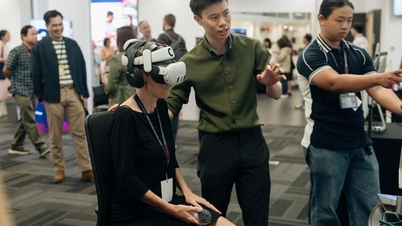
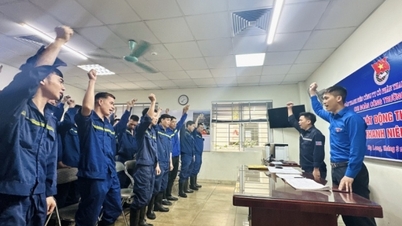











![[INFOGRAPHIC] The impressive career of Japanese Prime Minister Sanae Takaichi](https://vphoto.vietnam.vn/thumb/402x226/vietnam/resource/IMAGE/2025/10/22/1761134856370_info-tanthutuong-nhatban-anh-thumb-jpg.webp)


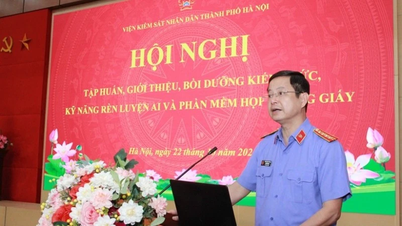






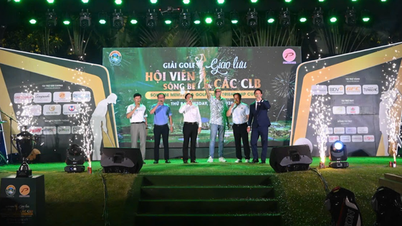










































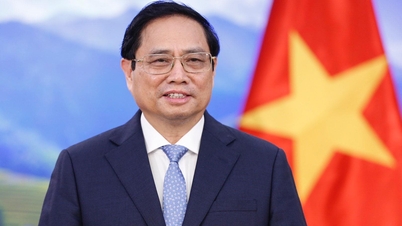

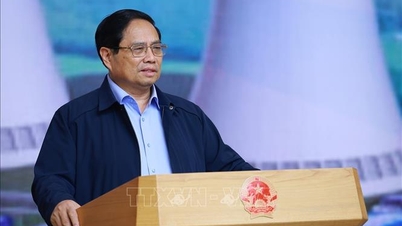




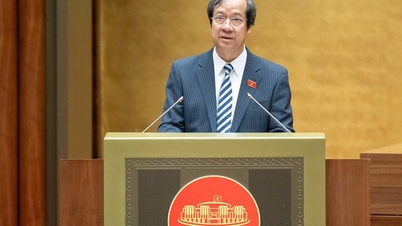


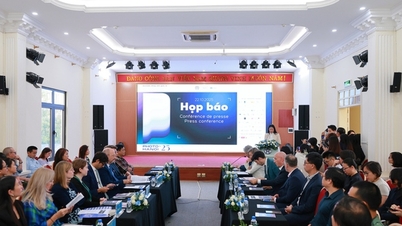
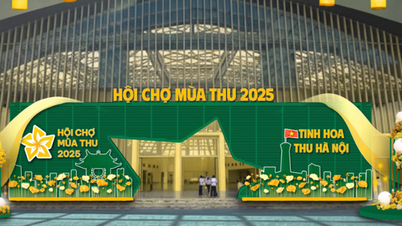
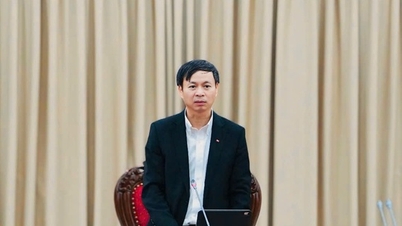

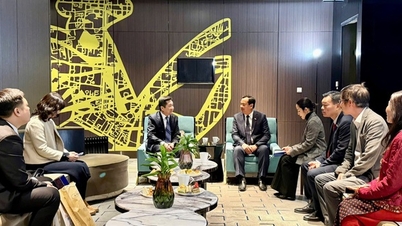




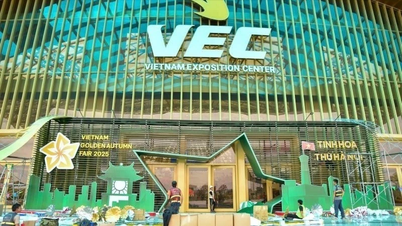

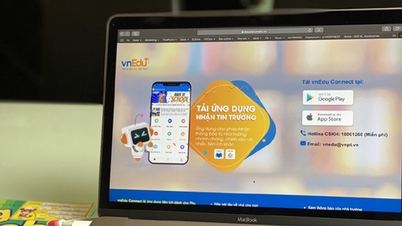

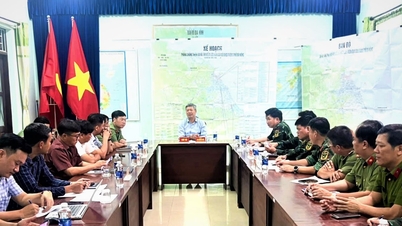

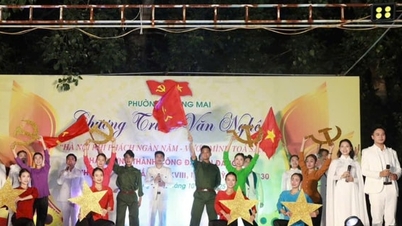













Comment (0)